- Home
- Nancy Buckingham
Valley of the Ravens Page 6
Valley of the Ravens Read online
Page 6
“As Mr. Smallbridge is to leave us soon, Ginny, we shall have to think of a new tutor for you.”
“But I don’t need a new tutor, Jerome. I am old enough now not to—”
“Sarah has volunteered for the position,” he said quietly. “How does that appeal to you?”
Ginny’s protest died on her lips. She stared at us both in bewilderment. “I don’t understand.”
“It is quite simple. You will be needing a tutor, and apparently Sarah feels that time drags heavily for her.”
“I did not say that, Jerome,” I objected.
“Perhaps not, but I could scarcely blame you if you had. What is there in this house that could possibly interest you?”
Ginny was bobbing up and down excitedly.
“Do you really mean that Sarah will teach me, instead of my having to have someone new?”
I smiled at her. “Will you let me, Ginny?”
She flung herself at me impetuously, throwing her arms around my neck. “Oh, how wonderful! You are a darling, Sarah, isn’t she, Jerome?”
He made no response, but he was smiling.
From her sofa by the fire, Nadine called in her clear, bell-like voice, “Jerome, pray tell the rest of us what all the excitement is about. It looks as if the three of you are hatching some plot.”
“I presume you have heard about Smallbridge?” he said, moving in her direction.
“You mean that he will be leaving us? Yes, Ginny mentioned something. It really is too bad.”
“Sarah has kindly offered to take his place in tutoring Ginny.”
Nadine greeted her husband’s words with stunned surprise. Then she said forcefully, “I am astonished that you considered such a suggestion for a single moment. Sarah is a member of the family, not a governess. There can be no question of using her as one.”
“I was not suggesting any such thing,” said Jerome mildly. “Merely that we should accept her kind offer to supervise Ginny’s work in the schoolroom. Nothing more.”
I felt embarrassed to be the cause of a dispute. I said quickly, “If you will just consider, Nadine, I think you’ll agree it would work very nicely. Ginny and I get along so well together. But you need have no fear that I would allow her to be slack at her lessons.”
Nadine shook her head emphatically. “Nevertheless, it simply will not do. It is sweet of you to offer, Sarah, but there it is.”
Ginny gave a strangled little cry and ran to her sister-in-law, clutching her hand.
“Oh please, Nadine, please ...”
There was a curious intensity about her, even for such a high-strung child as Ginny. It was as if she were imploring Nadine to release her from some bond of restraint. As if Nadine alone had the power to set her free.
Then Jerome spoke.
“We will give the plan a trial, Nadine. After all, Sarah herself might find the arrangement too arduous or too time-consuming. She must not feel in any way bound to continue with it if she does not wish.”
Uncle Joshua cleared his throat with an ominous rumble. “Nobody bothers to consult me on the matter. But then I am only the child’s parent!”
Jerome could match his father’s sarcasm, but he did it with a lighter touch.
“Won’t you please give us the benefit of your opinion, Father? I am sure we are at one in wanting what is best for Ginny.”
“How can we know whether this would be a good thing, Jerome? How can we be sure Sarah’s influence on the child will be beneficial, and not to her detriment?”
Such a slur on my integrity was more than I was prepared to tolerate.
“Perhaps you would care to be more specific, Uncle Joshua,” I said, eyes ablaze. “Are you afraid I will contaminate your daughter? Are you afraid that I will teach her to—”
“Sarah, please.” Jerome laid his hand lightly on my arm. “I understand how you must feel, but allow me to deal with my father.”
I glanced up and our eyes met. “Very well, Jerome!” Then, defiantly, in a voice that was meant to be overheard, I added, “Perhaps one day Uncle Joshua will regret making those insinuations.”
There was an awkward silence, before Nadine and Thirza both began to speak at once. Oscar caught my eye and winked at me.
I became aware that Ginny was by my side. She looked deeply unhappy, and I reproached myself for allowing such an unpleasant scene to flare up in her presence.
“Don’t worry, darling,” I said, reaching for her hand and giving it a comforting little squeeze. “Everything will be all right. Jerome says I may become your tutor, and so I shall.”
Ginny managed a tremulous little smile, but I could see she was still deeply upset. I tried again to reassure her, but I had lost her attention. She was staring at Nadine in silent appeal. But Nadine ignored her and turned away to talk to Uncle Joshua with great animation.
* * *
Chapter 5
One morning about a week after Uncle Joshua’s birthday, I was glancing along the library shelves hoping to find a book absorbing enough to divert my unhappy thoughts, when Thirza entered the room. Carefully, she closed the doors behind her.
“I saw you come in here a few minutes ago,” she explained, peering at me in her shortsighted, anxious way. “I thought it would be a good opportunity to have a quiet word with you.”
“Is there something wrong, Aunt Thirza?” I asked, wondering what was coming.
“That is what I intended asking you, my dear. I cannot help but notice that you have been looking far from happy.”
“The reason for my coming to live at Farracombe is hardly conducive to happiness,” I reminded her.
“I understand that, my dear. But you told me yourself that your papa had been ill and in pain for a long time, so in a way his death was a merciful release, was it not?” Diffidently, she laid a hand on my arm. “I have a feeling there is something else that distresses you, Sarah, quite apart from your father’s death. Would you care to tell me about it?”
“Well, yes, there is something,” I confessed, touched by her obvious concern for me. I suddenly felt a need to share my burden with someone, and who could serve better for this than Aunt Thirza? “It is about my sister. You see, since I’ve come back here to live I’ve learned something about Felicity’s supposed elopement with Ned Tassell which had been kept from me before.” My lips quivered. “I did not realize that she was regarded as a criminal. I was shattered when Uncle Joshua told me—or rather, threw it in my face.”
“Oh dear!” Thirza looked shocked. “But surely criminal is too harsh a word to use, in the circumstances?”
“Why is it? According to Uncle Joshua she stole a valuable pearl necklet. That makes her a criminal—a thief. But I know it isn’t true, Aunt Thirza. I know that Felicity didn’t steal those pearls.”
“What makes you so certain?”
“Because I loved and trusted her,” I cried passionately. “She would not have stooped to theft.”
“But Sarah, my dear, when she and Ned decided to run away together, they must have been badly in need of money.”
“Not by stealing,” I insisted. “However desperate she might have been.”
“You are forgetting, dear, that Ned helped himself to the miners’ wages.”
“We have no positive proof of that. Perhaps ... Oh, I don’t know—there must be a hundred possible explanations.”
Thirza shook her head regretfully. “But not one that would fit the facts so well. We all knew how devotedly Ned was in love with Felicity.”
“But she didn’t love him,” I objected.
“How can you be sure of that, Sarah?”
To me, it seemed an unnecessary question. Felicity was my sister, and we’d been close. But it was difficult to put my certainty into words.
“Felicity used to laugh about Ned to me, Aunt Thirza. She used to make fun of the lovesick expression on his face whenever he happened to be near her. I just know she would never have eloped with Ned Tassell.”
Thirza’s brow
creased into a worried frown. “Perhaps for some reason she was deliberately trying to conceal her love for Ned. She must have thought— rightly, no doubt, that her parents would never countenance such a marriage. So running away together must have seemed the only course open to them.”
I felt weighed down by a sense of helplessness. How could I hope to make anyone else understand? I had no proof, only an intuitive feeling which amounted to conviction. I simply could not believe that any girl, however anxious she might be to conceal the true state of her emotions, would be capable of such cruel and slighting gibes about the man she loved. At the same time, I couldn’t deny that Felicity had been secretly in love with someone. Who that someone was I hadn’t the remotest idea—except that it wasn’t Ned Tassell.
“Aunt Thirza, what am I going to do?” I cried. “I’ve got to find some way of proving that everyone is mistaken about Felicity.”
“Oh, my poor dear girl. You must not distress yourself like this. There is nothing to be gained by harping upon something that is long past and done with. Try to forget the whole unfortunate episode. That is what we must all do.”
“There is one person who will never forget,” I said bitterly. “Uncle Joshua has made that very plain. As far as he is concerned it will not be forgiven, either.”
Thirza made a small gesture of apology. “Joshua is a difficult man, I know. But do remember that he is old and sick. I am sure nobody else feels like that, Sarah.”
“I will not be branded the sister of a thief,” I said determinedly. “Somehow, I shall find a way of proving that Felicity did not steal the pearl necklet. I shall never give up trying however long it may take.”
* * * *
Later that morning we assembled as usual in Nadine’s room. On this occasion Oscar was absent. He was obliged to put in an appearance at the estate office now and then—for decency’s sake if for no other reason.
Nadine was in an unusually thoughtful mood as she gently stroked Foo-foo’s white silky coat.
“I think, Ginny dear,” she remarked, glancing up suddenly, “that perhaps we should invite your Mr. Smallbridge to dine one evening.”
Ginny sighed. “Oh must we, Nadine? I see quite enough of him as it is. Anyway,” she added pedantically, “he isn’t my Mr. Smallbridge.”
“Don’t be tiresome, you know perfectly well what I mean. We have never had Mr. Smallbridge to dine, and now that he will be leaving us soon I think it would be a nice gesture to invite him.”
I couldn’t help an inward smile of amusement. So the curate, since the news of his preferment, had become an eligible dinner guest at Farracombe Court How the humble were risen!
“Do you not agree with me, Sarah?” I heard Nadine asking.
“I have no particular opinion on the subject,” I replied, trying to be tactful.
“Come now, my dear Sarah, can you say that in all honesty?”
“Why not, since it is true? It matters nothing to me either way.”
She exchanged smiles with Thirza, as though they shared a private joke.
“That is not the impression we have gained, Sarah. Who was it you turned to when you needed a man’s advice about a pipe as a birthday present for my father-in-law? Not Oscar, we noticed, nor Jerome. No, it was Mr. Smallbridge!”
“That didn’t mean anything,” I protested. “As a matter of fact, Ginny asked him. It was really nothing to do with me.”
“So you use Ginny as a go-between! And why not? I am quite sure that Mr. Smallbridge was only too delighted to oblige. An opportunity to perform a favor for you, Sarah, is doubtless that young man’s idea of bliss.”
“But that’s absurd.” I glanced uneasily at Ginny. What had she been saying? I tried to recall what I could have said about Horace Smallbridge to give Ginny the wrong idea. “I assure you, Nadine, it is of no consequence to me whether you invite Mr. Small-bridge to dinner, or not.”
Her smile only deepened, and she said mysteriously, “We shall see, Sarah! We shall see!”
* * * *
The orangery was a place I found very congenial. I loved the restful atmosphere of trailing greenery, the scent of exotic blooms. I was reading there one morning a few days later, when Oscar strolled in.
“Ah, there you are, Sarah.” A confident smile spread across his handsome face. “What a charming picture you make. You are like the most perfect bloom of them all—such fragile, tender beauty.”
I laughed. “You really have overdone the flattery this time, Oscar. I assure you that I am by no means fragile.”
“Forgive my inadequacy with words.” He came and sat beside me on the cushioned bench, gazing teasingly into my eyes. “Upon my soul, Sarah, my love, it is simply incorrect that you are Felicity’s double, as everyone says. Damned if you aren’t twice as lovely as your sister ever was.”
I stiffened. “I would prefer you not to make such comparisons, Oscar.”
“Then I withdraw it,” he said contritely. “I want to please you, Sarah. More than anything, I want you to think well of me.”
“I do think well of you, Oscar. But you must stop pursuing me all around the house like this. It simply will not do.”
“But I cannot stop myself,” he countered. “I shall have to insist.”
His hand moved and captured mine. I tried to draw away, but he held on firmly, raising it to his lips.
“I am only paying homage to a beautiful woman, Sarah,” he murmured.
“An art at which you are far too well-practiced,” I said severely. “You are a dangerous man, Oscar.”
He gave a grateful laugh and turned my hand to kiss the inside of my wrist. At that moment a sound in the doorway made me glance round. It was Jerome. My cheeks flamed, but Oscar was entirely unembarrassed.
“Hello, old man. Were you looking for me?”
“Not you, Oscar. I wanted a word with Sarah. But some other time will do, when she is not so occupied.”
Already he was turning away. I sprang to my feet and went after him. “What is it, Jerome?”
He hesitated, and Oscar laughed. “That’s all right, you two carry on. Sarah and I can always continue our conversation at a more opportune time.” He stood up and strolled lazily out to the gardens.
“I am sorry, Jerome,” I said. “We were—”
“There is no need to apologize, Sarah, or to explain. I was only going to mention—not that it is of the least important—that I shall be riding over to Riversmeet Hall after luncheon. It occurred to me that being such a fine day you and Ginny might care to come with me. Richard Westbrook has inherited the estate from his father since you went away, and recently he married Cynthia Layering—who used to be a friend of yours, I remember. They are only just back from their honeymoon. Cynthia would be pleased to see you today, I’m sure.”
“I should like that very much, Jerome,” I said warmly. “And I know Ginny would, too.”
“Then shall we say three o’clock?”
* * * *
Ginny and I were ready and waiting when Jerome came over to the stables. In a few minutes we set off, Jerome leading the way on his magnificent bay stallion, which must have been all of seventeen hands high. Ginny was mounted on Bimbo, the delightful little purebred Exmoor pony that Jerome had bought for her at Hampton Fair the year before. I had chosen Keffel, a friendly light-gray cob with sufficient spirit to test my rusty riding skill, which I was delighted to find returning to me.
As we reached the open moor and broke into a trot, I became aware that Jerome was hanging back, allowing Ginny to get a little way ahead. I guessed that he wanted to say something to me, but he seemed curiously reluctant.
“Sarah,” he began at last, “forgive me—but I would like to offer you a word of advice—of warning.”
“Yes, Jerome?”
“I do most earnestly urge you not to give any encouragement to my brother-in-law.”
Embarrassed, I reacted with feigned anger. “I have never given Oscar the least encouragement. I find him amusing to ta
lk to, but I should not dream of taking him seriously. I am perfectly aware that he is an incorrigible flirt.”
“I am glad you understand that. When I saw you talking to him in the orangery, I was afraid that you ... I should not like to see you hurt, Sarah—especially by someone as trivial as Oscar. My brother-in-law is a curious enigma. In almost every way he is frivolous and irresponsible, thinking only of his own amusement. But his saving grace is that he has a deep devotion for his sister, just as Nadine has for him. Otherwise...”
Jerome left his remark unfinished, but I thought I knew what he meant. If it were not for the bond of affection between brother and sister, he would not have tolerated Oscar’s presence at Farracombe all this time. There was little pretense that Oscar Medwyn’s job on the estate was other than a sinecure. He received a handsome salary for doing almost nothing.
The track narrowed again as we began to descend into a combe, and I realized we were nearing the site of Wheddon Cleeve, the largest of the old mine workings. The stream beside us tumbled through a narrow cleft of bare rock which gleamed with a rust-red sheen, evidence of the iron ore lying everywhere beneath our feet, though never, to my father’s bitter disappointment, in veins rich enough to be profitable.
In the days of my childhood the rocky combe had rung with the noise of miners laboring with their picks and shovels, but it was silent now. There was only the muted murmur of the stream and the sharp click-click of a tiny stonechat, which I spotted perched upon a swaying stem of sedge grass. Glossy fronds of hart’s-tongue fern thrust out from every crevice, and where the stream widened there were little islands of brilliant yellow monkey flower. Innumerable butterflies danced above the carpet of heather, their wings shimmering in the sunlight
We came to where the main adit had been driven into the hillside. Its empty mouth gaped blackly. The sheds and shacks clustered around it were already falling into a sad state of disrepair, the blacksmith’s shop had lost its roof, and the water wheel for the pumps stood gaunt and still.
Jerome broke the ghost-ridden silence, echoing my own sad thoughts.

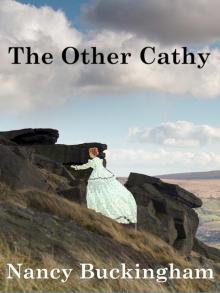 The Other Cathy
The Other Cathy Design for Murder
Design for Murder Valley of the Ravens
Valley of the Ravens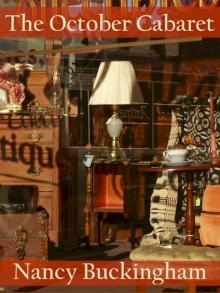 The October Cabaret
The October Cabaret Model Murder
Model Murder Murder in the Cotswolds
Murder in the Cotswolds Deadly Deceit
Deadly Deceit Return to Vienna
Return to Vienna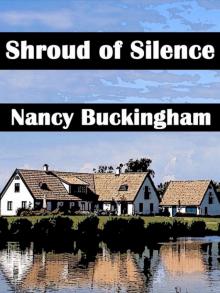 Shroud of Silence
Shroud of Silence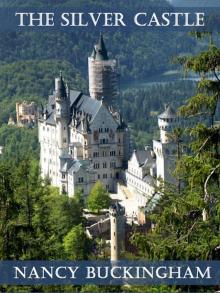 The Silver Castle
The Silver Castle A Cotswolds Legacy
A Cotswolds Legacy Marianna
Marianna Cold Coffin
Cold Coffin Kiss of Hot Sun
Kiss of Hot Sun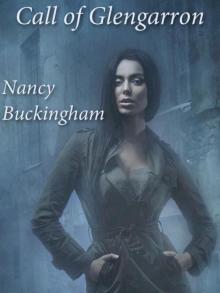 Call of Glengarron
Call of Glengarron Quest for Alexis
Quest for Alexis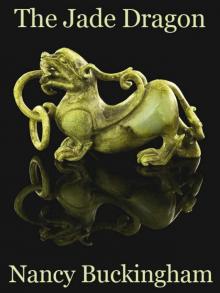 The Jade Dragon
The Jade Dragon